Why Last Call BBS is the last call for indie studio Zachtronics
With this anthology of games, the creators of Opus Magnum, Infinifactory, Eliza, and SpaceChem are calling it quits.
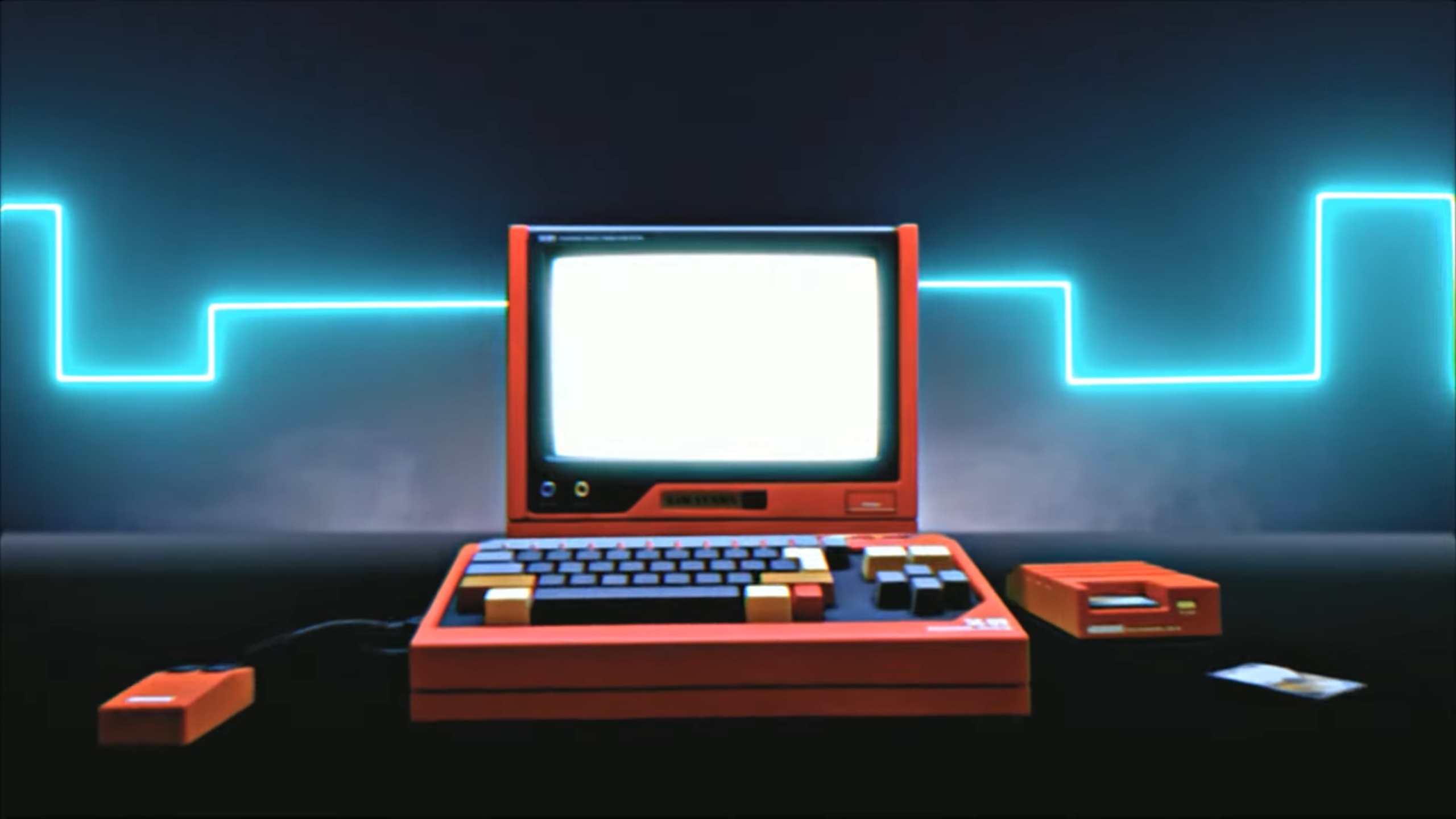
Zachtronics announced Last Call BBS by casually calling it "the last game from Zachtronics!" That caused a bit of a stir, excitement for a new game balanced by concern over the closure of the studio announcing it. Is this really the end? "We're definitely shutting down Zachtronics," says Zach Barth, the studio's founder and creative director. "It's not [going to be] like, 'Surprise! Zachtronics is back open!' No, Zachtronics is over."
While the plan is to follow Last Call BBS with a compilation of the Solitaire variants whose inclusion has become a motif for Zachtronics, that's more of an encore. Last Call BBS is the studio's finale, a big climactic number to resolve all the chords.
Since SpaceChem, a 2011 puzzle game about designing circuits to synthesize molecules while strange anomalies pile up in the background, Barth and his collaborators have made a certain kind of game their own. Games about automation, whether you're making machines that move things around or using a fictional programming language to create a program for a specific task. Puzzle games with multiple solutions so you feel like you're inventing your own, whether kludgy or elegant, then streamlining it until it's efficient enough to climb the leaderboard.
"Occupying that niche was getting a little stale," says writer/musician/graphic designer Matthew Burns, who joined Zachtronics for block-based conveyor belt disaster simulator Infinifactory in 2015. "Not necessarily in terms of the games that we were making, but just for ourselves as creators. It was really about shaking things up and thinking about what else we can do. Because in a certain way, we felt we were just continuing to make similar games over and over for a fanbase that we appreciate very much, but we also didn't imagine ourselves doing this for the entirety of our lives."
Not every Zachtronics game has been a straight 'Zach-like'. Ironclad Tactics was a strategy game in a steampunk alternate history Civil War, Nerts! Online was fast-paced competitive Solitaire, and Eliza was a visual novel about AI and the privacy risks of digital therapy. Yet different as they are, the process behind them was not. "It's the way of making the game," Barth explains. "Eliza is a visual novel, it's very different gameplay-wise from our puzzle games, but from a production standpoint it was almost exactly the same. We all did exactly the same jobs, it took exactly the same amount of time. When it came to launch day, it felt literally no different from any of our other games."
Don't fret, though. While Zachtronics is ending, the individuals behind it will carry on making games. Though Burns doesn't have any specific plans yet, he says, "I want to try something new. I want to try pursuing some of the directions that I initially explored in Eliza, for example. I think that's true for everyone on the team in their own way."
That includes Barth, to his surprise. "I just finished up my first year of teaching," he says. "It's also my last year of teaching."
The biggest gaming news, reviews and hardware deals
Keep up to date with the most important stories and the best deals, as picked by the PC Gamer team.
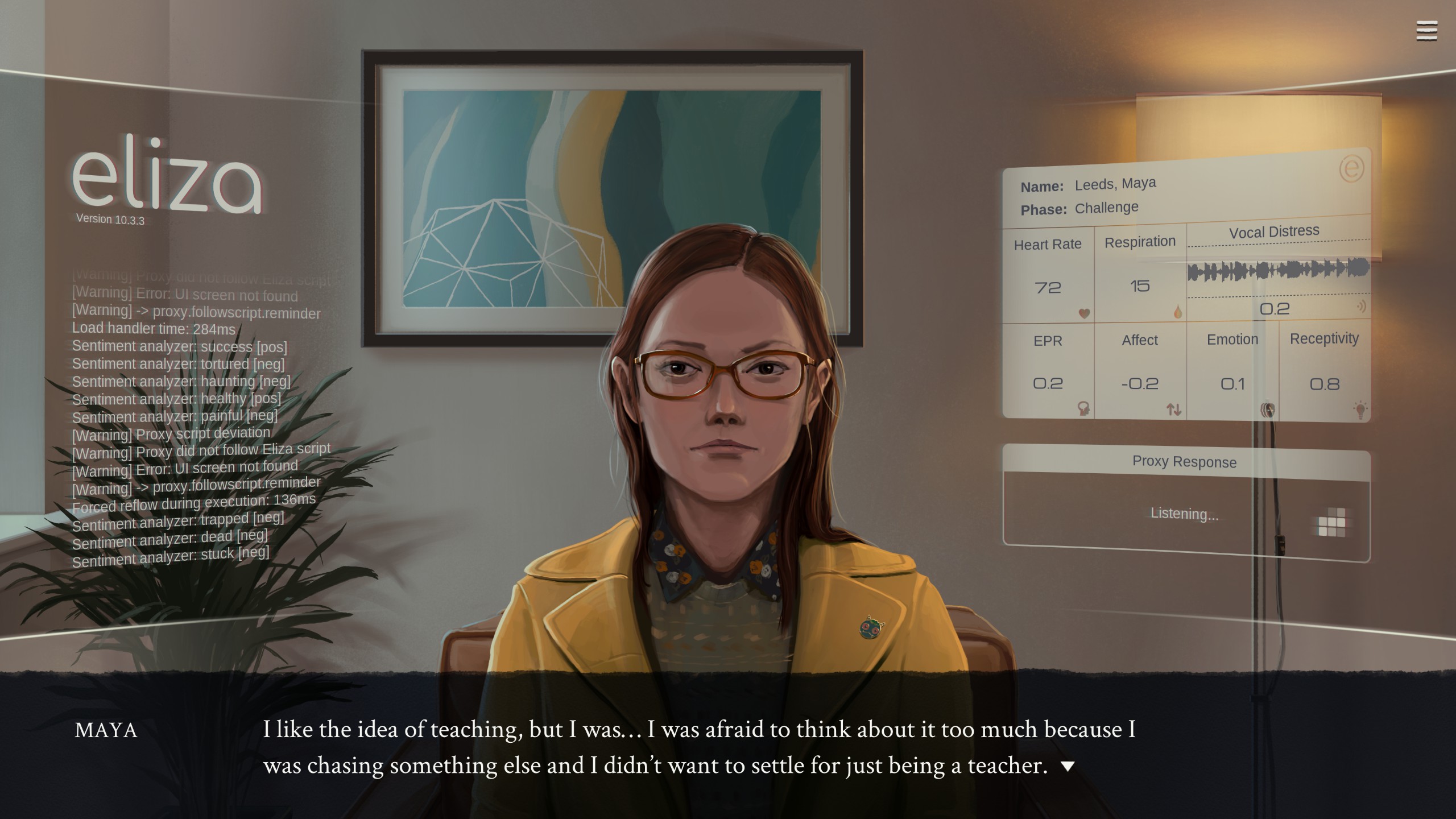
It's educational
For the last 12 months, Barth pursued a career outside of games. His plan was initially to wrap up Zachtronics first, but then Covid happened, delaying Last Call BBS until it overlapped with his other job: teaching high school students how to program.
Barth's interest in education goes back a ways. "When we first made SpaceChem one of the first things we thought was like, 'Oh, we could sell this to schools, it's educational, kind of!'" Zachtronics went on to make a few educational games for mobile with a company called Amplify, but having to work within a narrow curriculum was frustrating.
"I got a little burnt emotionally on that project," Barth says, "but I was still really interested in education. One of the things I really wanted was this unmediated, unfiltered look at what education is really like in practice, and the only way I could really conceive of doing that was teaching."
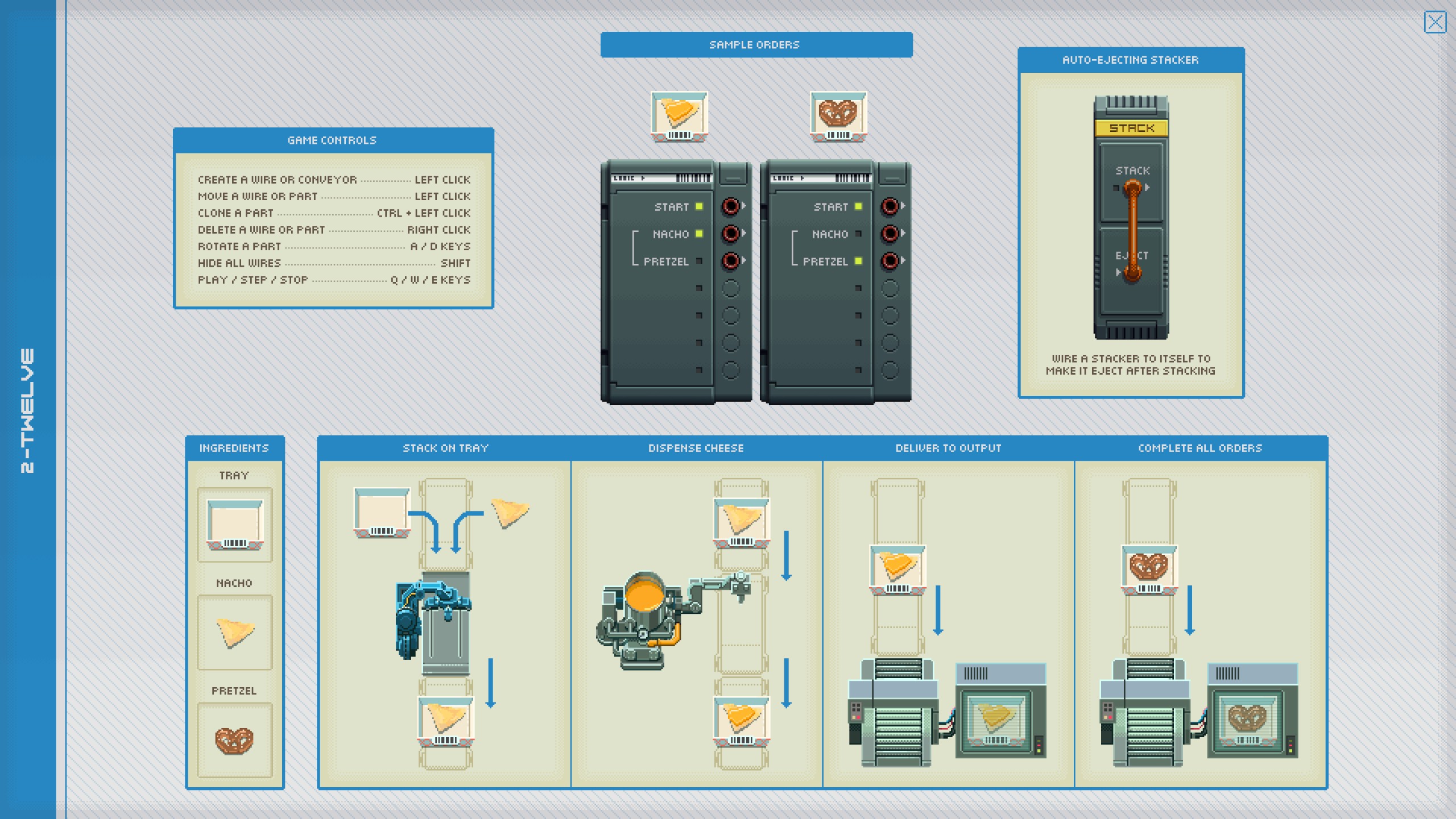
Being a teacher was also an opportunity to have the kind of job you can tell people about without then having to explain what you actually do. A 'real job', in other words. "I was hoping this would be a job that I could find peace with and be a better version of myself and teach children and it'd be wonderful. There's a fantasy involved: 'I'm going to be a proper adult now!'"
Again, the fantasy didn't live up to reality. "I'm not really cut out to be a teacher, it turns out," Barth admits. "I learned how to program 25 years ago. I can't understand what it's like to just be learning how to program now. I can't do it." Which isn't to say he didn't enjoy it. "It was fun. That was really great. That's the thing every teacher always says: the kids are great, the bureaucracy is awful. And it's true."
After his year-long adventure in education, Barth returned to dedicate himself to Last Call BBS full-time. And after that, he plans to continue working on games in some fashion, whatever it turns out to be. "I'm actually excited about doing game stuff after having a year of having to get up early and not make games," he says.
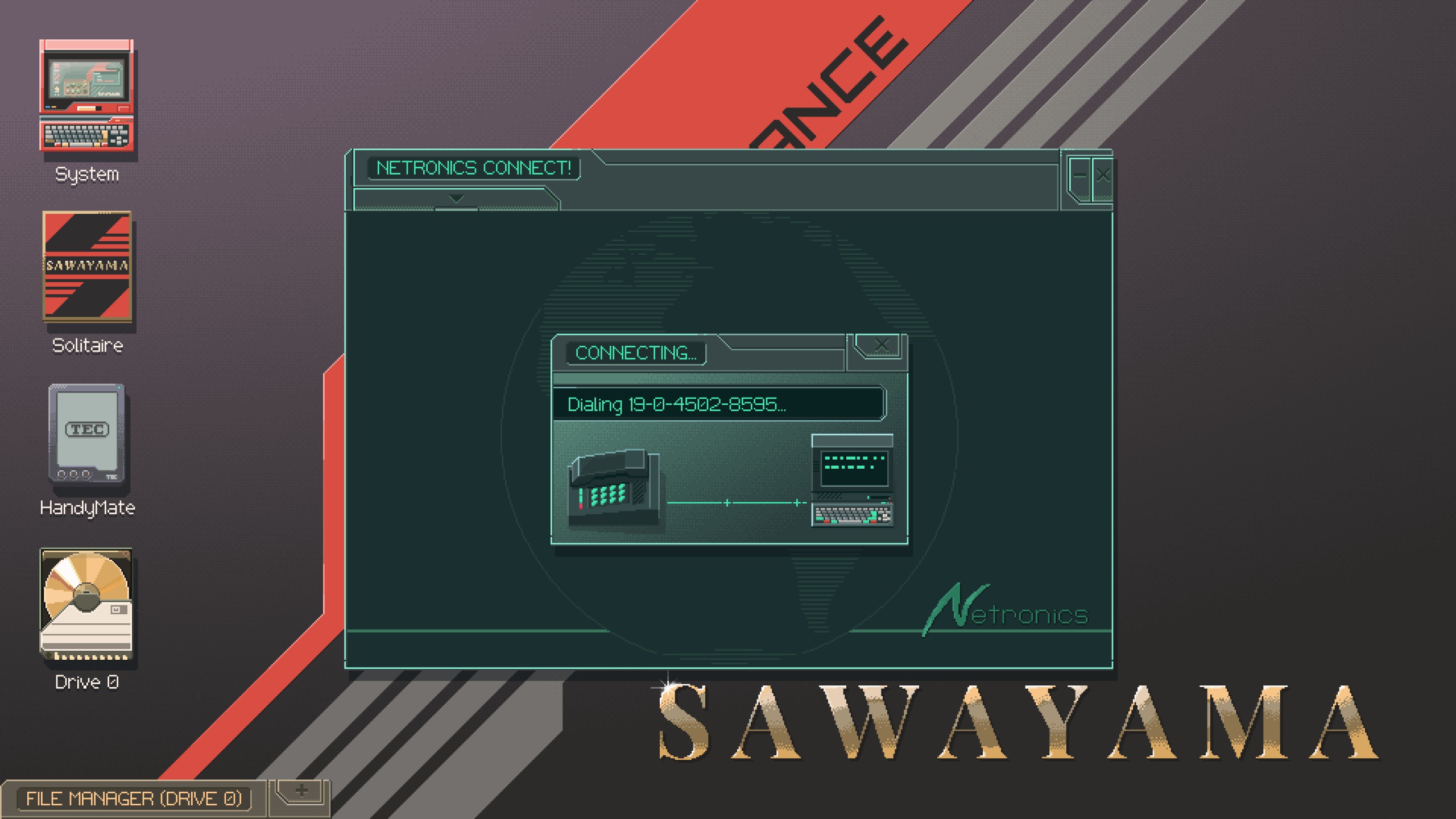
Time gentlemen, please
What is Last Call BBS anyway? "It's about this golden age of computing that both Zach and I are pretty fascinated by and fond of," says Burns. "This time in the mid to late '90s when personal computers were gaining capabilities really fast and it really seemed like the sky was the limit. Before a lot of companies really controlled what you were able to do with your computer, so you could hack it, you could aftermarket modify it, you could pirate things very easily."
You've got your hands on a Z5 Powerlance, a fictional PC made by a Japanese company called Sawayama (also responsible for the Wonderdisc in Exapunks). Thanks to your friend, a BBS sysop called The Barkeep, this retro PC can play eight games, fully cracked for your enjoyment. In a way, they're a farewell to the Zachtronics oeuvre. There's a game about designing factories and a game about integrating circuits. Three of the games let you export victory gifs to show off your solutions. There's not one but two Solitaire variants.
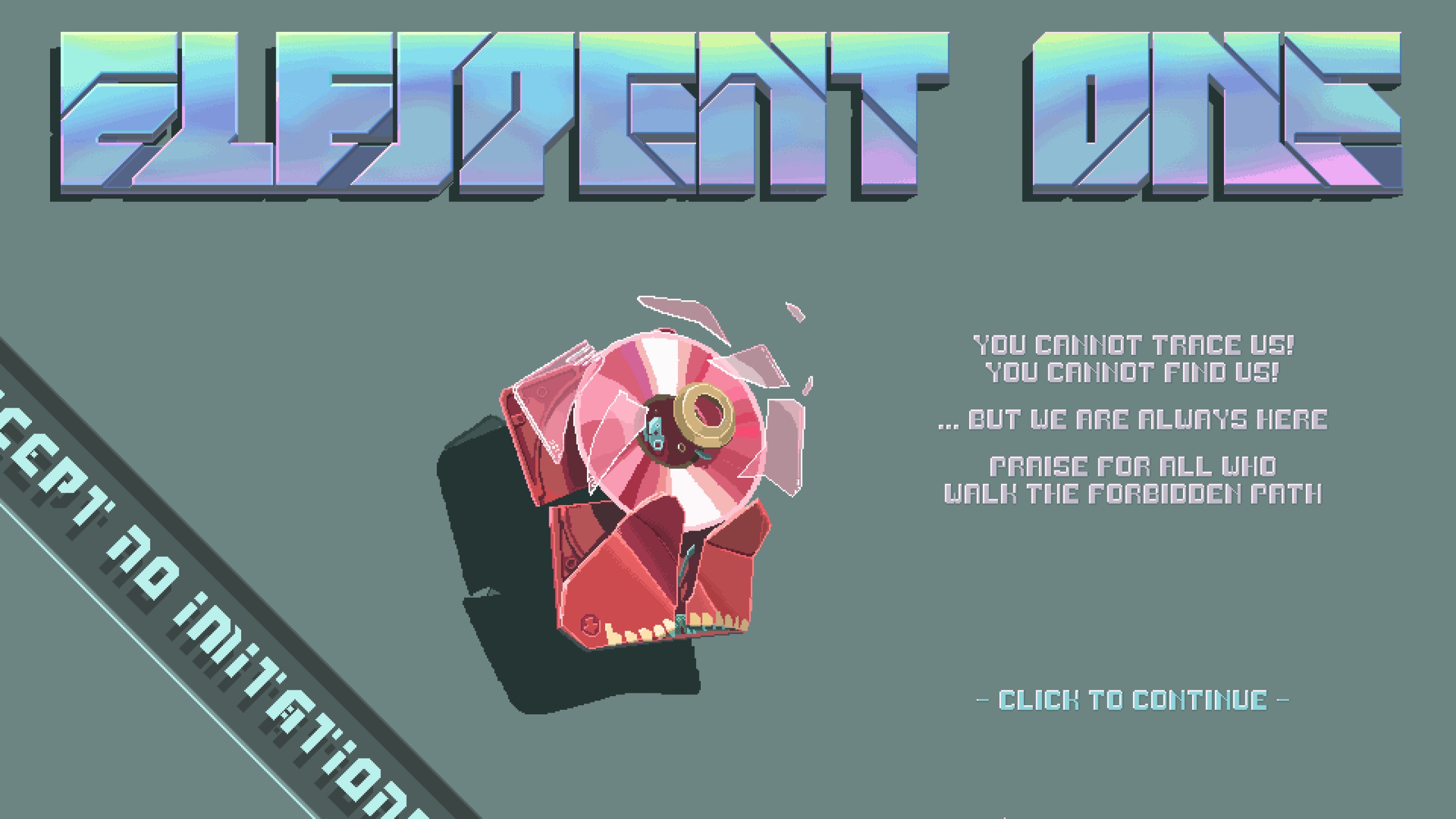
"One of the games, ChipWizard, is a remake of one of my earlier Flash games called KOHCTPYKTOP, which is really hardcore," Barth says. "Most people I don't think ever figured out how to play it, but like twice a year I'll get an email from somebody being like, 'This is my favorite game I've ever played. When are you going to remake this?'"
HACK*MATCH is another remake. This tile-matching minigame from Exapunks had previously been ported to the NES (no, really). Thanks to the anthology format of Last Call BBS, they have an excuse to port it back. "We actually made the game better by porting it to the NES, but who the hell is going to play an NES game?" asks Barth. "We sold 400 cartridges, but even that's very narrow. We can take the code from that, we can revamp it, we can put in that multiplayer mode, we can put in the singleplayer mode we always wanted, and really remaster it for this release. We would have never gotten the chance to do it otherwise."
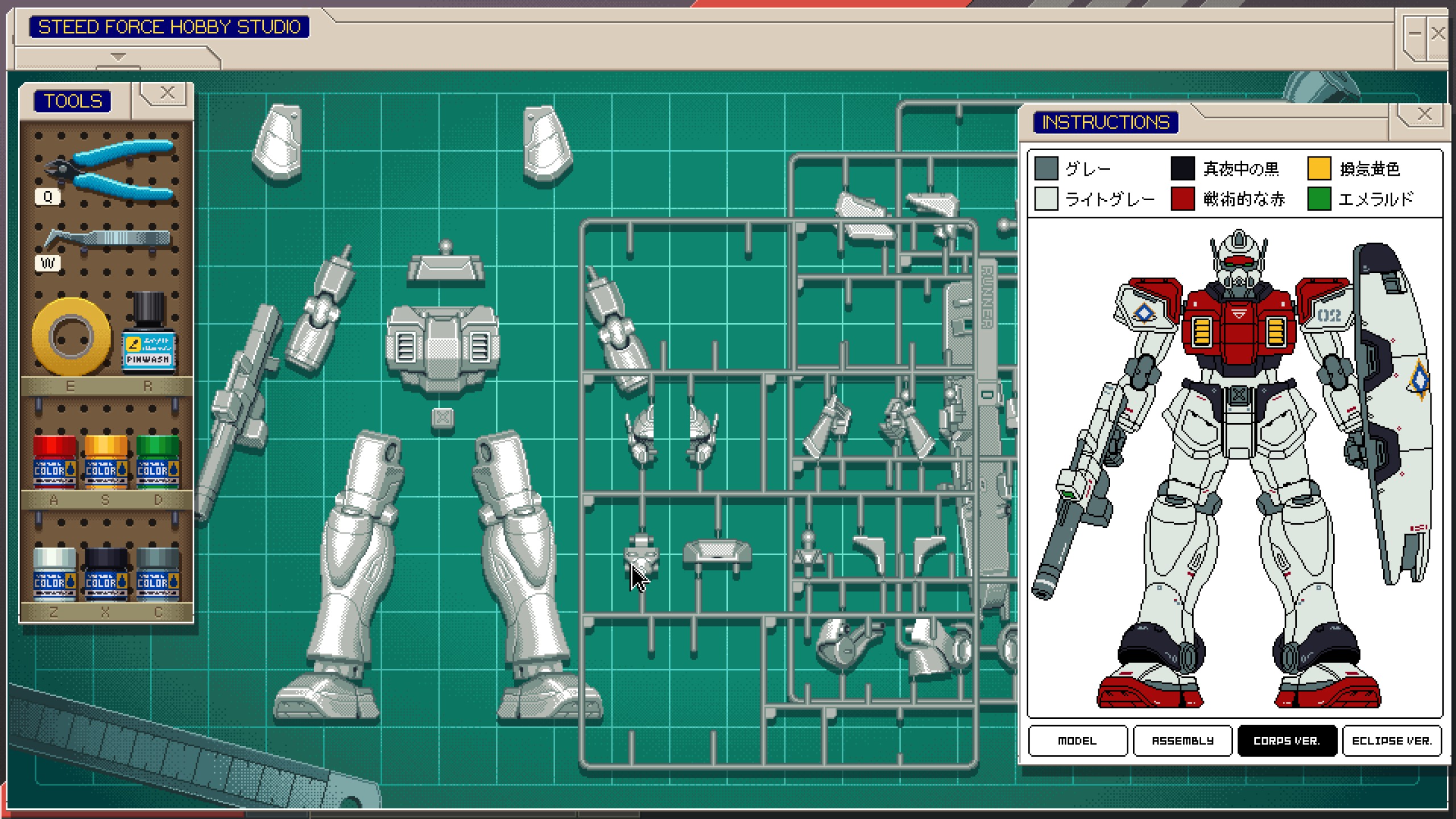
It's not all remakes. One of my favorite parts of the package is Steed Force Hobby Studio, which gives you three model kits for anime robots and the tools to assemble them from scratch. You snip the pieces off plastic sprues, clip them together, and try to make something that looks like the front of the box.
"One of our artists is really into assembling Gundam models," Barth says. "He's been working with us for years, and for years I've been trying to say, I really want to make a game about putting together plastic model kits. I could never figure out how to do it. In this framework of a bunch of small games, we went out for a walk one day and we're like, 'We could do this, we could finally make the game about assembling model kits!' We just play it completely straight and make it where it's just a simulation of snapping them together and we don't have to worry about how to blow this up into a $20 experience."
The assembled models need to be spraypainted too, after carefully laying down tape so the spraycan's blunt circular cursor doesn't blast acrylic red all over the pristine white legs, of course. Our own Fraser Brown once observed videogames should let us paint our armies, and he was right. While some strategy games let you personalize color schemes and pick hats for your guys, it's not the same as freeform painting. The only other game I can think of that let you do that was Might & Magic: Showdown, which Ubisoft took offline because of course it did.
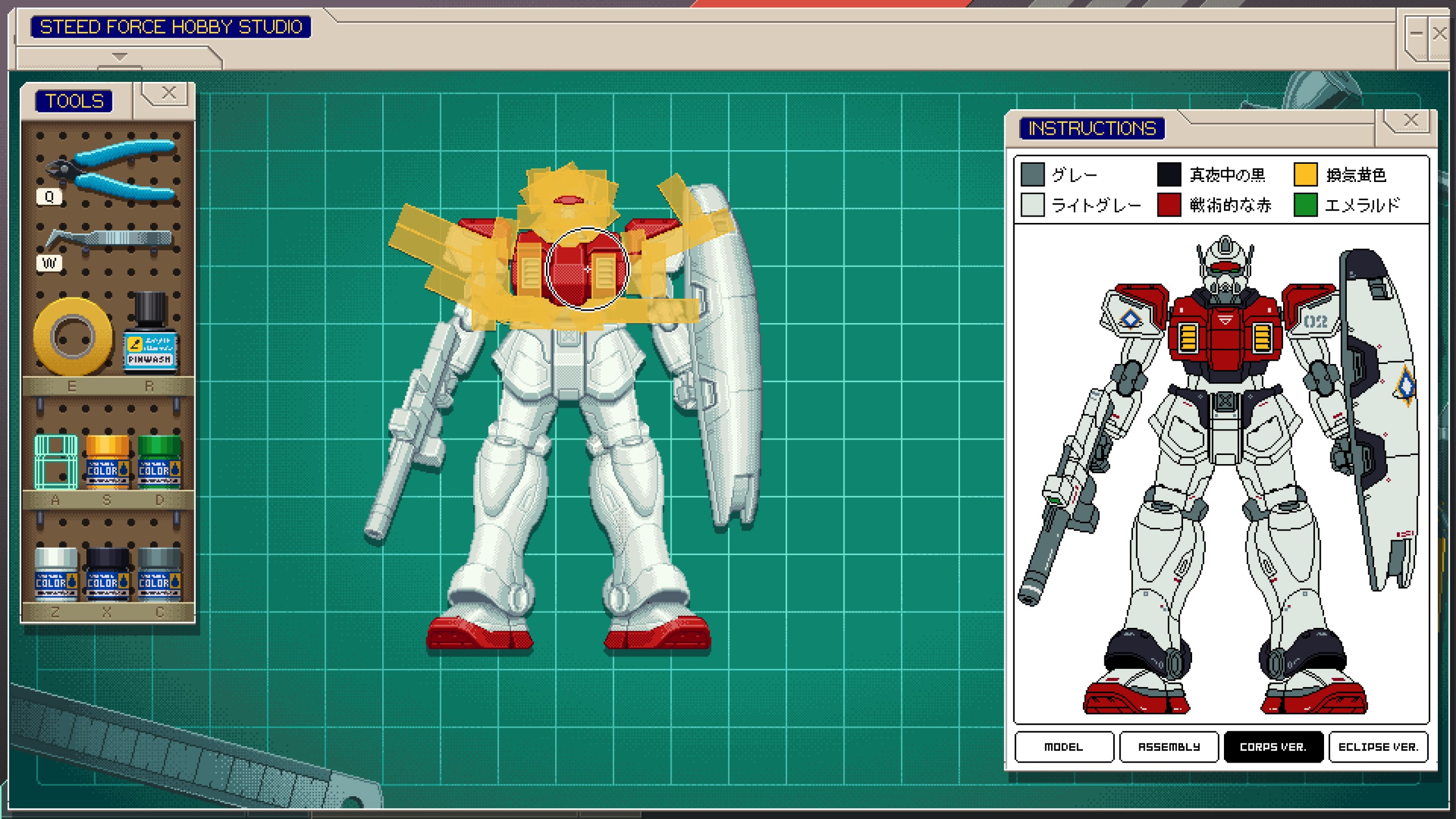
"We spent too many months working on a game called Miniatures, which was a tactics game where every single unit you had was a miniature you had to buy and then assemble and paint," says Barth. "That's where that comes from. We never figured out how to do that and make it work because it was like a painting thing and a tactics game. And that's hard."
Assembling digital versions of plastic models has a similarly pleasant, clicky tactility as putting together real ones and has the advantage of letting you undo mistakes without having to either layer more paint on or figure out how to strip it back. "It's kind of a puzzle too," says Barth. "Trying to put together a model kit, there's like 50 pieces on some of them and the instructions do not explain everything by any stretch. It's like, they drew a picture of what you're building, go for it!"
Dark Seed
There are also games that break out of the format, like X'BPGH, which both Barth and Burns refer to by its subtitle: The Forbidden Path. In this Hellraiser-esque horror puzzle you grow seeds into skin, sculpting a new flesh for a mysterious master who promises eternal life. Where some games in Last Call pop up in a humble window on the Powerlance's desktop, The Forbidden Path takes over your entire screen with its occult symbols and H. R. Giger/Mariusz Lewandowski-esque visuals.
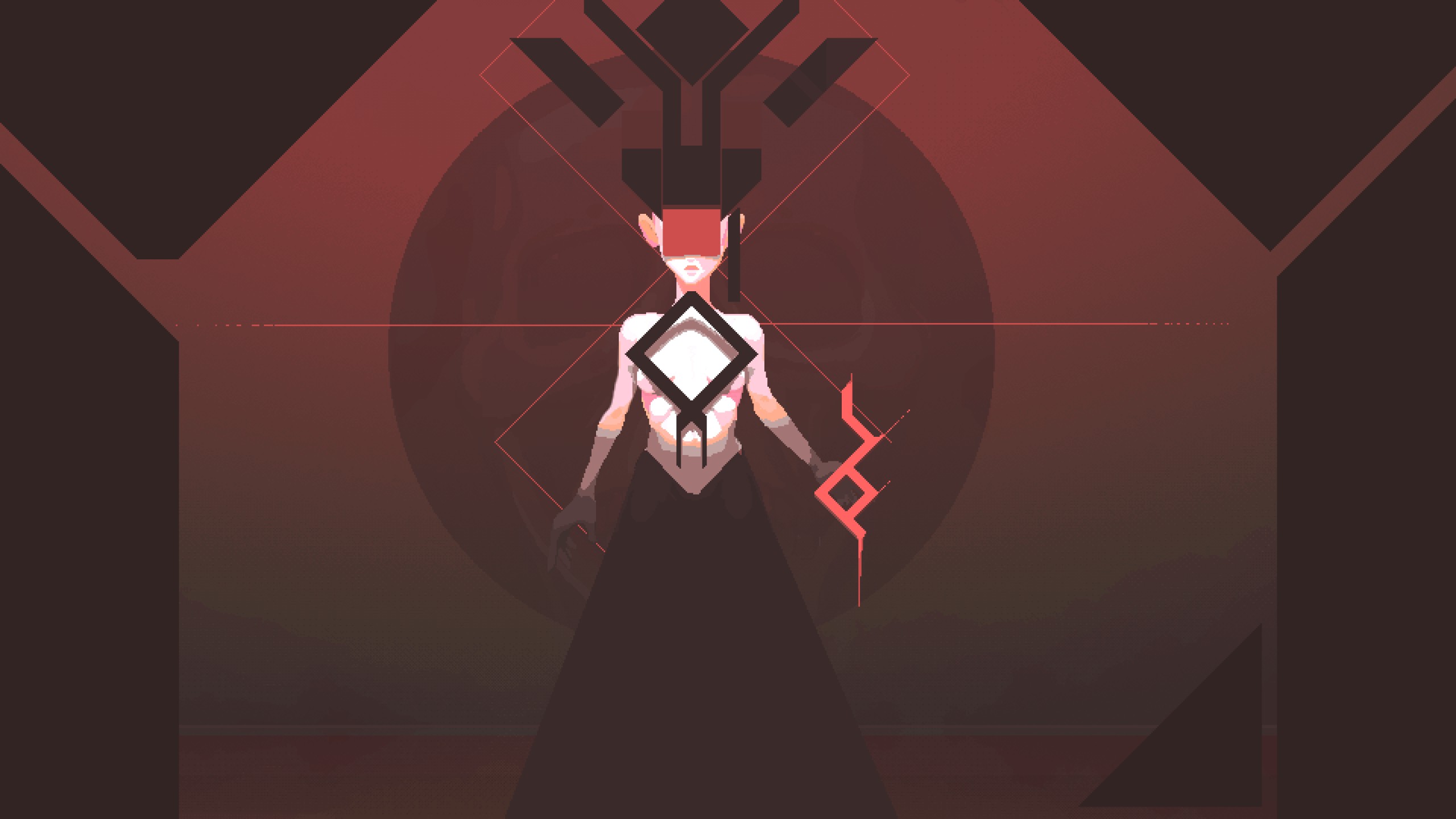
"This is our equivalent of a triple-A game in this universe," says Barth. "That's very much the story behind how it was made, in our frame story. It would be impossible for it not to feel like a different experience than the rest of the games, which are largely like the equivalent of, like, indie games."
The big-budget multimedia games of the early CD-ROM era did have something alien about them. Often products of collaborations with film and television studios, they came from outside the traditional games industry and for better or worse had outside perspectives on what games could be. By presenting itself as an intrusion from another dimension The Forbidden Path gets back a sense of that strangeness.
"We also wanted to be super absurd with it," says Burns. "The idea was this was an era when you could make a game like that and try to make that a big deal, which is just not true any more—that you could make a game that ridiculous and try to make it this big deal. It feels to me like back in the day you could pick the most bizarre premise and really push it and use the most advanced technology of the day to try to realize it."
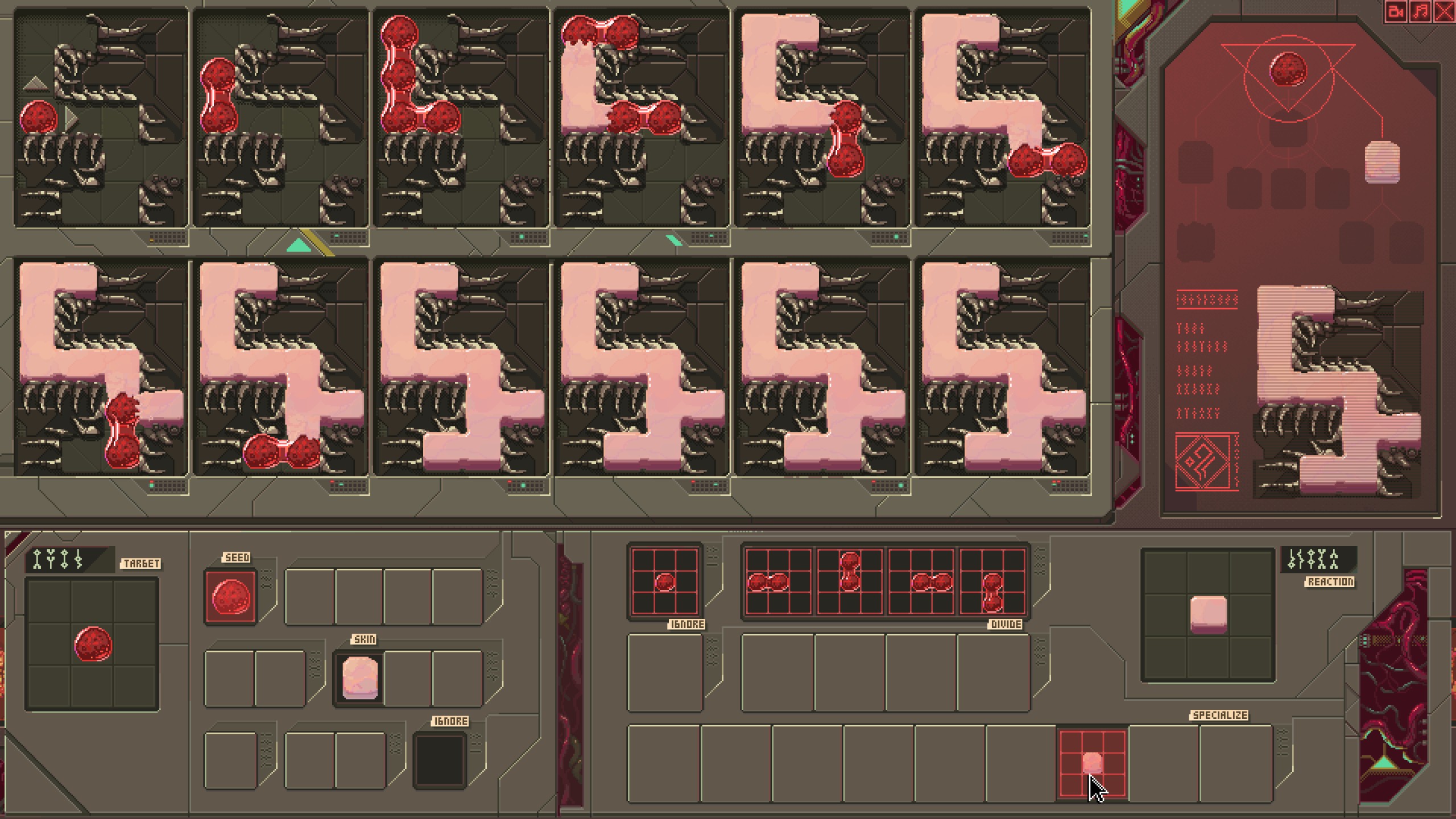
"You'll get published by Virgin Interactive," Barth adds. "It's also one of the more cryptic games of the bunch because it doesn't have instructions. I don't want to say it's a thing we're deliberately trying to do, because all my games feel like they're missing instructions and people just have to figure it out, which is a 'me problem'. This one in particular, we were trying to figure out where to dial the instructions, and it didn't feel like an appropriate game for it to really walk you through everything. We settled on something that feels more like there was a manual for this game, and you didn't get it when you pirated the game. You're figuring out how to play the game, and what it's about is part of the mystery."
This is the last goodbye
The computer is the final element in Last Call BBS. The Powerlance boots up with a speaker crackle and every window opens with a crunchy disk-reading sound. Though it comes with Sawayama Solitaire preinstalled, you have to dial into the BBS (complete with modem sounds) to download the other games. Each takes two or three minutes.
"We want it to feel like you're pirating these games," says Barth, "we want it to feel like you're acquiring them and playing them. The excitement of that, we wanted to mimic that. When you click the BBS you have to wait for the stuff to stream in because it's coming in character by character over your modem. We wanted to simulate all of that aesthetically. I also wanted to slow people down so they don't just boot up eight games in a row, try them all out, and then never play them again."
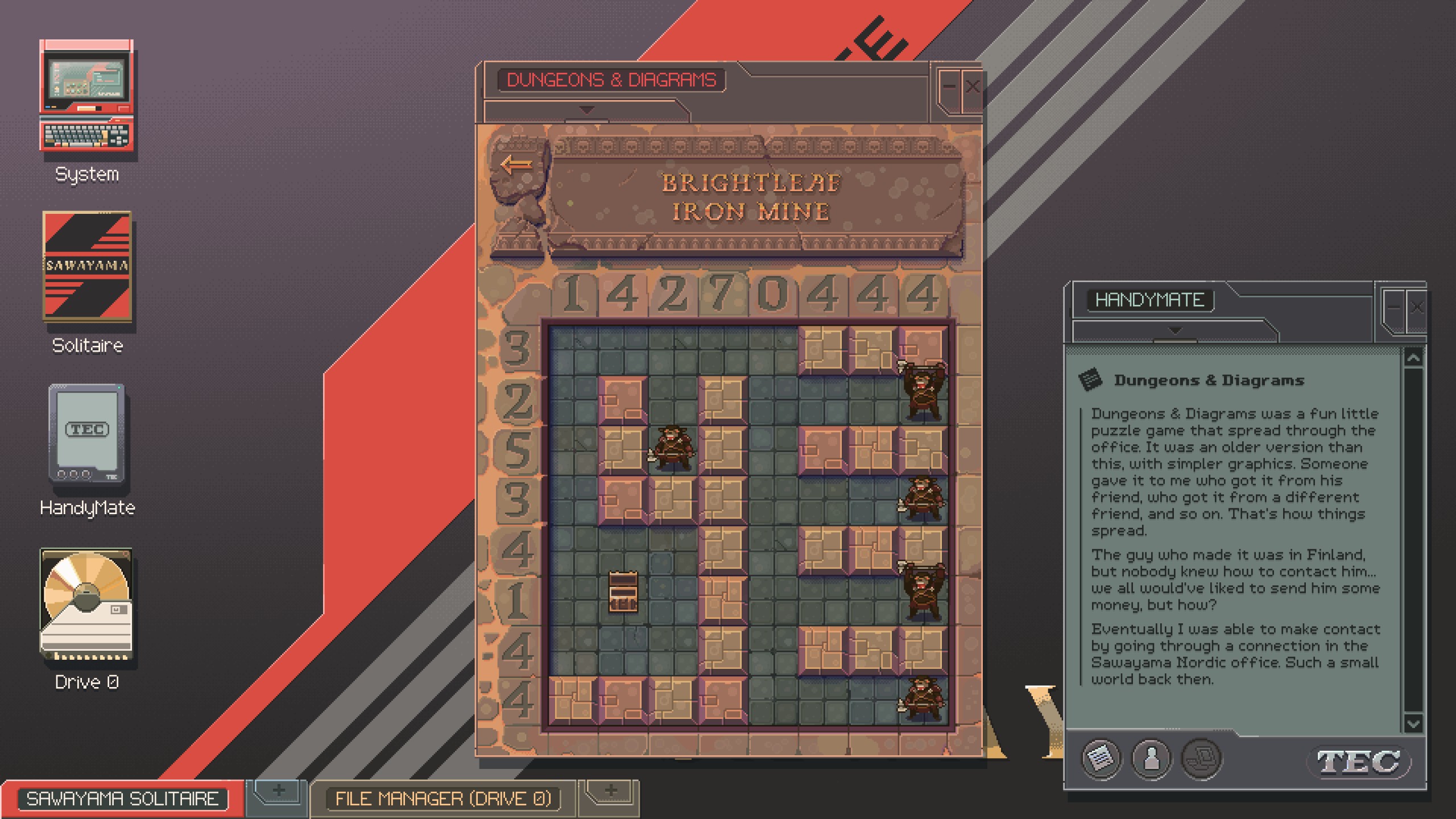
There's another timer at the other end of the process. Once you've downloaded a game your quota is full and you can't get another for 11 to 14 minutes, depending. The idea is that you're encouraged to properly try each one before acquiring the next. If you don't like them, there's always Solitaire to fall back on while you wait.
"We wanted to make this collection of little games," says Barth, "but it took forever to figure out, how do we actually give them out to people? Do we release two a month, or two every couple months? Do we release all of them at once, but then make it so you actually have to play through the games in order to unlock them? I still don't really know the best way, like the best best way to give somebody a bunch of small games all at the same time. I don't know how to do that. What's in the game now is my best attempt at solving that problem."
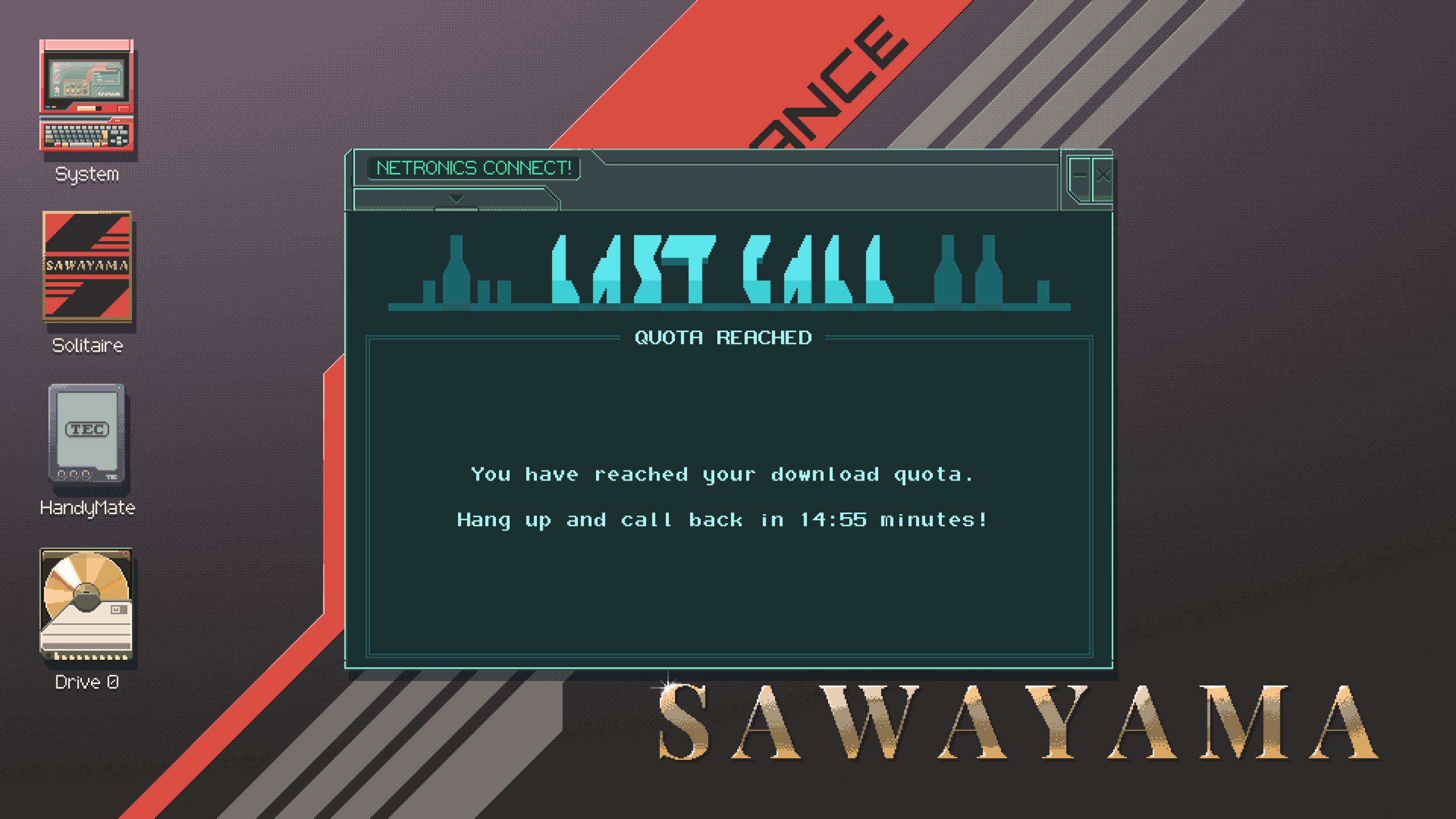
Both the download times and the quota timer are shorter than they would have been in reality. While the original plan was to make the wait authentically long, that didn't last. "The earlier build of the game would be like, come back in an hour!" Burns says with a laugh.
"The game is launching in Early Access," says Barth, "and this is one of the parts of the design that I'm a bit more conscientious about and concerned about. Because I don't think we nailed it."
Some of the games, once downloaded, launch with cracktros complete with bleepy music and bouncing text full of shout-outs from one crew of pirates to another. They're another well-observed and period-accurate historical detail, as is the inclusion of a stock market tracker and global time display. Then there are the notes left by The Barkeep in the HandyMate memo program describing who made each and why The Barkeep preserved them.
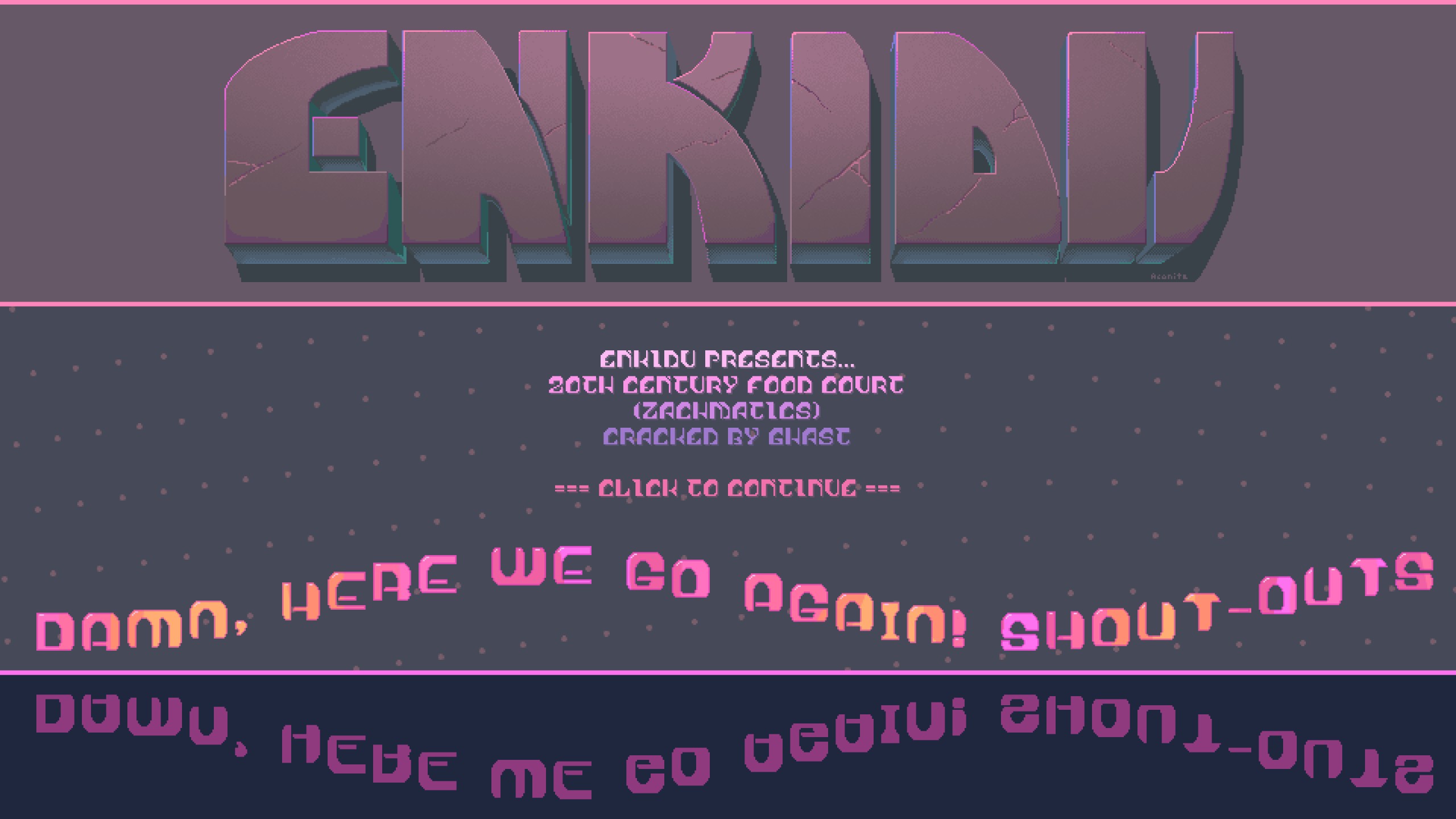
"The story in the game follows one person's career working for a Japanese computer company in the '90s," says Burns, "his kind of adventure of what that was like. Also, because it's looking back at that past, it's also a little bit about our relationship to nostalgia as well. We like that stuff, but it's hard to fully indulge in nostalgia completely because if all you ever do is think about how great everything in the past used to be you can't really move forward."
"Each game has its own story that goes with it," says Barth, "its own meta story. That story is typically about the people who made that software. And we made software, and it's about the arcs and careers of those people who made that software. What did they do when they stopped making software? Why did they stop making software? We made software, but we're stopping making software, there's a parallel there. I don't know. I feel called out by a little bit of it."
Last Call BBS is a final hit of conflicted nostalgia before they press the big shutdown button on Zachtronics and listen to the machinery spin to a stop. The conveyor belts transporting blocks to satisfy alien overlords' whims and the swinging arms manipulating alchemical reagents will halt, the imaginary PCs will power down, and the Solitaire decks shuffle away.
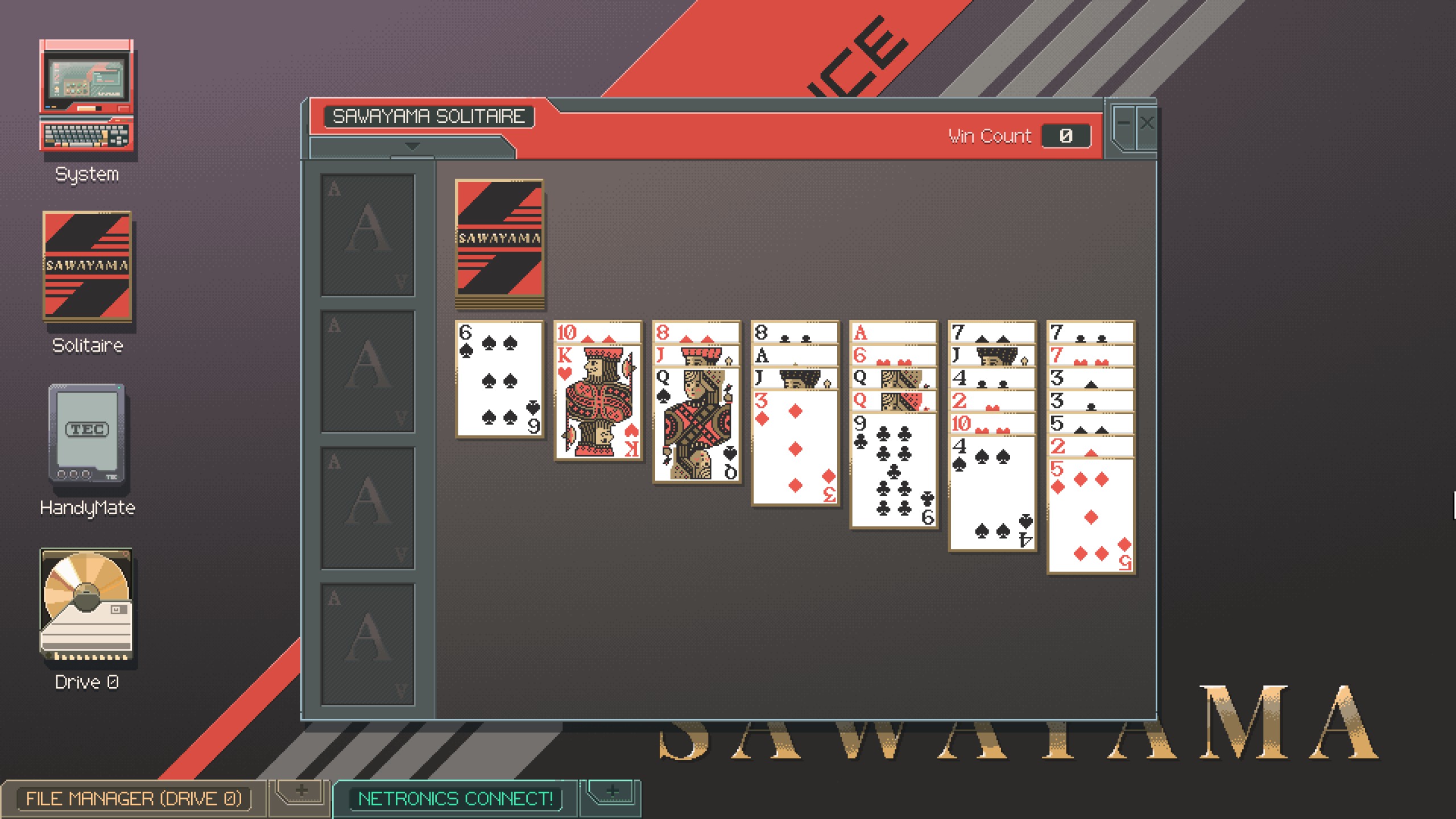
"Whatever comes next is going to presumably involve games in some capacity, but hopefully something better than just slinging the same games year after year after year," says Barth. "The fucked-up thing is that I kind of want to make another puzzle game now because I do love doing it."
Last Call BBS is available in Early Access on Steam.

Jody's first computer was a Commodore 64, so he remembers having to use a code wheel to play Pool of Radiance. A former music journalist who interviewed everyone from Giorgio Moroder to Trent Reznor, Jody also co-hosted Australia's first radio show about videogames, Zed Games. He's written for Rock Paper Shotgun, The Big Issue, GamesRadar, Zam, Glixel, Five Out of Ten Magazine, and Playboy.com, whose cheques with the bunny logo made for fun conversations at the bank. Jody's first article for PC Gamer was about the audio of Alien Isolation, published in 2015, and since then he's written about why Silent Hill belongs on PC, why Recettear: An Item Shop's Tale is the best fantasy shopkeeper tycoon game, and how weird Lost Ark can get. Jody edited PC Gamer Indie from 2017 to 2018, and he eventually lived up to his promise to play every Warhammer videogame.

